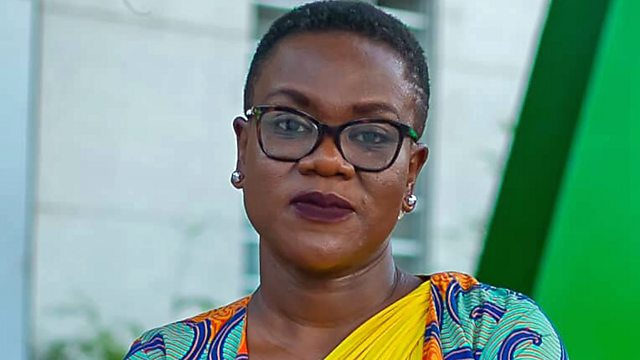Tween Talk with Eugenia Tachie Menson
Merriam Webster defines literacy (noun) as: the quality or state of being literate…helpful? Didn’t think so; looked up ‘literate’ and saw a number of definitions there. Whilst I found ‘the ability to read and write’, I also found the meanings, “educated, cultured” and “having knowledge and competence”, with the example “computer-literate”.
We need to bridge the digital divide
That term caught my eye; computer literacy would mean being able to understand and use the computer efficiently. And that would, in effect, also mean one has access (note, I didn’t say ‘own’) to a computer. Therefore, it would be safe to say the meaning of the word ‘literacy’ spans beyond just reading and writing, no?
September 8 was International Literacy Day and the theme for this annual observation was “Literacy for a human-centered recovery: Narrowing the digital divide”. The theme was quite apt, I found. Wondering why?

When the pandemic hit us in 2020 and President Akufo-Addo ordered schools to shut down from March 16, 2020, no one knew what would happen next for students. Stay home and not go to school? How would we learn, seeing as the rest of the world was learning, using technology? How do we go on to the next class, grade, or form? The schools that had the resources took their teaching sessions online so their students’ learning will not be interrupted; you should count yourself blessed if you were able to study online.
Blessed, because more than 70% of schools in Ghana do not have access to digital learning resources (so that will mean no access to computers, TV or internet); imagine the number of students who had to stay home during the pandemic and not learn for one.whole.year!
The term digital divide refers to the gap between those who have ready access to computers and the internet, and those who do not. The need to narrow or close this gap is to ensure that no one is left behind in terms of access to information and communication technologies.
The sudden shift to online learning highlighted the persistent digital divide in terms of connectivity, resources, and the ability to engage with technology, not to talk about the lack of access to electricity, which does limit learning options.
The pandemic, however, was a reminder of the critical importance of literacy. Beyond its fundamental importance as part of the right to education, literacy empowers people and improves their lives by expanding their capabilities to choose a kind of life they can value. Literacy is an essential part of education and lifelong learning and therefore, is central to a “human-centered” (or as I’d like to put it, human-focused) recovery from the impact of COVID-19 crisis.
According to UNESCO (an international organization for education, scientific and cultural matters), “ILD 2021 will explore how literacy can contribute to building a solid foundation for a human-centered recovery, with a special focus on the interplay of literacy and digital skills required by non-literate youth and adults. It will also explore what makes technology-enabled literacy learning inclusive and meaningful to leave no one behind.”
They intend to use this year’s observation of the International Literacy Day as an opportunity to reimagine future literacy teaching and learning, within and beyond the context of the pandemic. This just means that we all must want to be involved in wanting to normalise (or should that be regularise?) digital literacy and access to it.
So, how does that include you? Or how can you help?
- Recycling your old gadgets – if your school has, say, old computers (this will include even laptops) they’re looking to dispose of in place of newer models, guess what you could do? Suggest to your school to donate such computers/laptops/tablets to a public school near you – they definitely will have need for it
- ICT training – you could volunteer to teach some of your peers (in the public schools) some of the ICT skills you have learnt from school. You are not too young to impact someone else’s life and you sure do have knowledge that you can share with your contemporaries (in public schools) who don’t have such access. Of course, you will need to do this with the support of an adult and your school’s guidance.
It is in your interest that everyone around you (and not just your friends or people you know) is digitally literate because that ensures we all are able to collaborate/connect with each other for the future.










